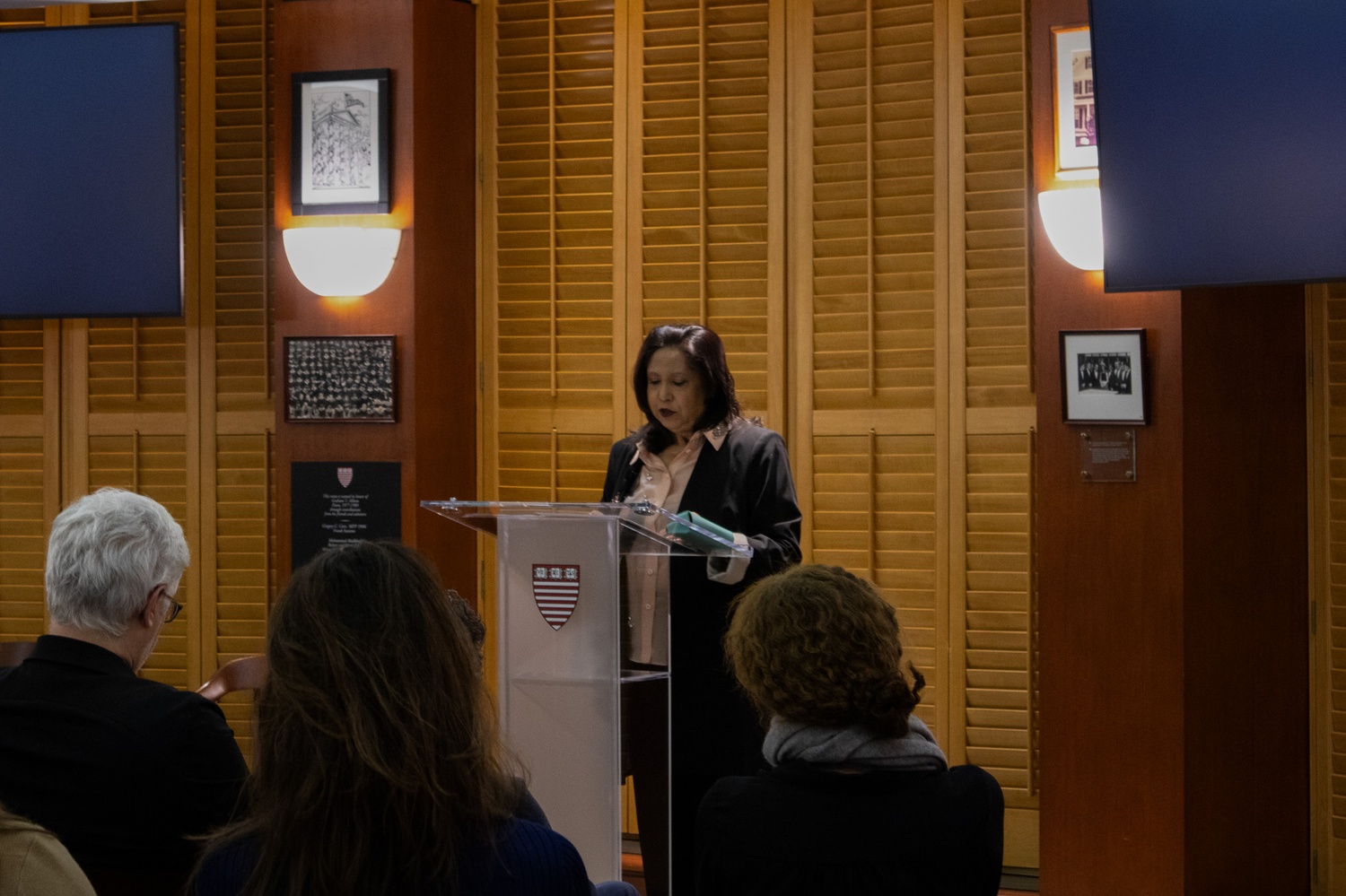
News
Summers Will Not Finish Semester of Teaching as Harvard Investigates Epstein Ties

News
Harvard College Students Report Favoring Divestment from Israel in HUA Survey

News
‘He Should Resign’: Harvard Undergrads Take Hard Line Against Summers Over Epstein Scandal

News
Harvard To Launch New Investigation Into Epstein’s Ties to Summers, Other University Affiliates

News
Harvard Students To Vote on Divestment From Israel in Inaugural HUA Election Survey
UN Representative Talks Conflict-Related Sexual Violence at IOP’s Annual McNamara Lecture

Pramila R. Patten, the United Nations Special Representative on Sexual Violence in Conflict, stressed the urgent need for increased protective measures for vulnerable populations amid crises of sexual violence in conflict zones during the Harvard Institute of Politics’ annual Robert S. McNamara Lecture on War and Peace Monday evening.
The lecture — moderated by Harvard Kennedy School professor Dara Kay Cohen — focused largely on issues of conflict-related sexual violence across the globe and introduced initiatives her office launched during previous years to combat these issues.
“We meet at a time when conflict-related sexual violence is again in our daily headlines, and its recurrence with each new wave of warfare continues to shock the collective conscience of humanity,” Patten said.
Patten gave examples of how numerous ongoing conflicts have affected women of all ages in war zones.
“Young women are being abducted from dormitories and hospitals, shackled, and transported in the back of pickup trucks by fighters to be sold in slave markets in northern Darfur,” she said, referring to the ongoing civil war in Sudan.
“The ages of the victims in Ukraine varied from four to eighty-four years old. The Independent International Commission of Inquiry provided chilling details of sexual violence affecting victims of all ages,” she added.
When touching on the “severe, complex, and neglected humanitarian crisis” triggered by massive displacement in the Democratic Republic of the Congo, she pointed out desperate measures women and girls are taking for survival.
“Women and girls have resorted to carrying condoms when they go outside to carry out livelihood activities in this climate of interlinked physical and food insecurity,” Patten said.
In an interview, attendee Nilufer J. Mistry Sheasby ’28 noted a gender dissimilarity in the room compared to other IOP events.
“I think the gender discrepancy between this and other IOP events was really troubling, because I’ve been to a lot of IOP events, and it is very heavily male, and this room is very heavily female,” she said.
In her speech, Patten also spoke about the legislative accomplishments of her UN office in advancing preventative measures.
“Each and every time I meet survivors, I hear them repeating the same message to me — that what happened to them could have been prevented, and this is what led me, in the discharge of my mandate, to get the 26 UN entities of which the network is comprised to converge,” Patten said.
“Survivors need more than our solidarity,” she added.
Want to keep up with breaking news? Subscribe to our email newsletter.
